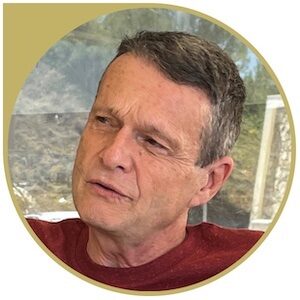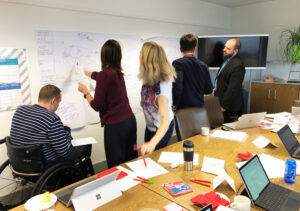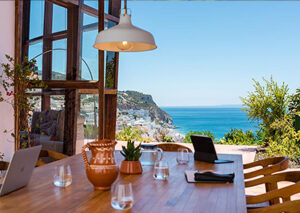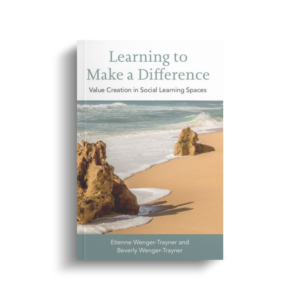This is the third year we are holding our BEtreat workshops. This summer we had three BEtreats – you can see the highlights here. Seeing the BEtreat genre evolve over these three years has been interesting. It was also good to have quite a few people come back for a second or third time. They have become witnesses of and players in this evolution. Here are some observations.
Integrating social media
There is increasing familiarity with social media. Fully integrating the use of a wiki into our activities and interactions was still quite a novelty when we started. Today it seems unremarkable, almost expected.
Our goal is to achieve seamless face-to-face and online participation with commonly available community resources. Something we’ve noticed is that people who thrive in face-to-face/online integration tend to be playful and inventive and curious about connecting in multiple ways. And online participation seems to work well for people who enjoy reflective modes of communication.
We are still wondering what the ideal mix of online and face-to-face is. The three BEtreats this year were very different. In the state-of-the-art BEtreat, we had a small group and one online person. She became the darling of the workshop and felt very integrated, but she did not have online company.
The cutting-edge BEtreat had a large group and four online participants. Sometimes we worried we were neglecting onliners, but they had developed enough confidence as a group to tell us to stop talking to them as face-to-facers with a disability and get on with things until they told us it wasn’t working for them.
In the academic BEtreat, we had eight online participants and eight face-to-face. This pushed the limits of the technology too far in the beginning – to the extent that we offered them their money back. However, they all wanted to continue and, as the technology improved, we saw an interesting whole-group dynamic where onliners were not a minority.
Breadth, depth, and sector focus
Balancing depth and breadth of focus is still a challenge for us. Four days seems like a long time, but it shoots by. Which conversations should we cut out to stick to the agenda? Streamlining the number and diversity of topics that come up while not missing out on anyone’s concerns requires some fine-tuning that we need to get better at.
We spent more time in sector groups this year. It allowed people to focus on shared issues within sectors and help each other address them. We will certainly push this further next year, especially for exploring emerging issues. But it will also get us thinking of how to balance the time we spend on sector-oriented learning, cross-sector boundary encounters, and general topics and issues.
Broader focus
We have seen a broadening of the focus of BEtreats over the years. Three years ago, the main concern was in building robust communities of practice. While this is still important, there is also an increasing interest in social learning theory and its application more broadly. The discussion of our current research direction focusing on social learning capability in landscapes of practice generated a lot of interest. We doubt this would have got as much interest three years ago.







